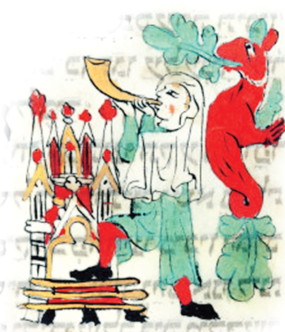We don’t know exactly when the Yovel year begins. It’s the culmination of seven cycles of seven years, each culminating in a sh’mitah—sabbatical—year. The only way to arrive at Yovel is to count seven years, then seven again and again until forty-nine years have gone by.
Similarly, the Torah never tells us precisely when to celebrate Shavuot. Unlike other holidays, there’s no date assigned. Instead, we count from the second night of Passover: seven weeks, forty-nine days, to commemorate fifty days of walking from Egypt to Sinai. Just as each week of counting the Omer, the period between Passover and Shavuot, includes a day of rest for human beings, each seventh year of counting the Yovel is a sabbatical year for the land.
As we count to fifty—either years or weeks—we build anticipation, notice the passage of time, and look to the future. We don’t count down—we count up, because we are excited about what is yet to come.
Pirkei Avot, an ancient tractate of rabbinic aphorisms, teaches that each significant human life stage bears certain characteristics. Fifty is the age of advice. That is: fifty is the age at which one has lived enough, studied enough, worked enough, and both succeeded and failed enough to offer advice to others. This year, we commemorate fifty years since the Six-Day War. What advice for the future can we glean from these past fifty years?
As you study the sources in this section, ask yourself how the act of counting might challenge and inspire us in this fiftieth year? What have we learned in the past fifty years? How will we move forward in the next fifty and beyond?


